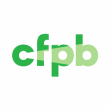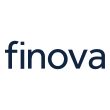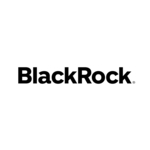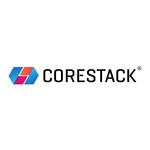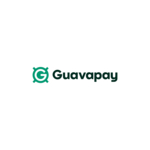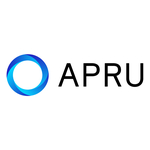Interview: Ramin Niroumand, co-founder of FinLeap

Ramon Niroumand, FinLeap: “The banks we had spoken to simply did not share our mindset and attitude towards innovation, speed and agility.”
Berlin-based fintech incubator FinLeap and solarisBank have created the first global banking platform, called Solaris – a Banking-as-a-Platform (BaaP) service. What is it all about and how is it going to make its mark on the fintech industry? Devie Mohan interviews FinLeap’s co-founder, Ramin Niroumand.
The solarisBank launch has been in the press quite a lot recently – it feels to me that you must have had this planned for quite a long time. What was the idea behind solarisBank?
Indeed, it had been in the back of our minds for a long time, but it simply takes time to launch a bank. We started thinking about solarisBank in summer 2014, the same time when we also created FinLeap and our first ventures.
We wanted to focus on being customer centric. We wanted to understand the challenges of the modern banking customers and solve their problems more efficiently. Today, this still is one of the main goals of any FinLeap venture, also of solarisBank.
However, we quickly realised that this could only be achieved if we went down the entire value chain of creating new financial services. The banks we had spoken to simply did not share our mindset and attitude towards innovation, speed and agility. We decided we needed to do it right.
The idea really crystallised in early 2015, and it took us a year to obtain a full German banking licence and launch solarisBank. It was an incredibly interesting 12 months with lots of learning and great support by all FinLeap teams.
Actually, the bank launch is a good example of the efficiency with which we build companies. If you want to start a bank, you just cannot only work with digital entrepreneurs, you also need to work with financial industry experts and learn from them.
We also needed a lot of technological expertise. After all, we wanted to build a tech-company with a banking licence, not just another bank. We established this unique combination of talents under the FinLeap roof and used it to build solarisBank.
It’s interesting you’ve mentioned your production capabilities and how it helped you in the launch process of a new bank. Can you explain your process?
You need to combine an entrepreneurial mindset, with financial industry knowhow and technological capabilities. That is the basic idea behind FinLeap.
For instance, in the beginning of any project, we have to understand the legal and compliance requirements for the specific business model. That is absolutely crucial. This requires the work of true experts, with years of experience. At FinLeap, we can offer resources such as in-house lawyers and regulatory experts that would be too expensive or too hard to obtain for a single start-up. That’s what I meant by production capabilities.
We have always had the willingness and attitude to learn and improve the execution side of our projects. Here, hiring the right people has paid off and worked for us. We want to provide innovative services that offer the same regulative standards as established financial players, and we have the right people to execute our ideas.
Which regulators did you end up working with? Was it just the German Federal Financial Supervisory Authority (BaFin) or anybody else?
Yes, we only talked to BaFin and it was a very positive experience. BaFin understood us right from the beginning as a partner who can help digital companies and fintechs grow and stay compliant.
We, on the other side, see regulation as a privilege that exists for very clear reasons.
Banking-as-a-Platform is a very interesting concept, and something most traditional banks think will be the future of fintech (or even financial services). Where does solarisBank come into the picture of the future of banking as we see it today? Is this model something that can be replicated, or is this something that’s going to be unique?
We see solarisBank being an important part of the future of banking. We believe that fintechs will be the future providers of financial services to customers. It simply is easier for them to react to changes in customer behaviour.
SolarisBank, as a banking platform, is the system working behind those fintechs. The stable base if you will.
It will benefit many businesses by supplying an open platform that allows fast access and the design of individual financial solutions, customised to any company’s need.
I think, in the future there won’t be a lot of different banking platforms, just a few providing excellent services.
Imagine a set-up similar to the one currently developing in the world of servers and clouds. Not long ago, everyone hosted their data on decentralised servers all over the world. Today, many systems function on clouds provided by Amazon or Microsoft and everyone offers their service through a central platform. SolarisBank aims to be that platform for the financial world.
Do you think the idea of solarisBank as a platform can appeal to traditional banks as well?
Yes, definitely, I strongly believe so. SolarisBank already has a strong customer demand. Talking from the technical point of view, solarisBank definitely has an appeal to established banks.
What kind of partnerships would you expect on this platform, and where are the gaps, do you think? Where do you see the fintech partnership framework going in the future?
To be consequent in the platform approach you have to be open to all kinds of partnerships – not only with fintechs but also with established digital players and banks. Since we can offer various banking services in different “bricks”, each kind of fintech can get the offering they need for the business model.
Marketplaces and internet platforms looking for a PSD II compliant escrow solution are very welcome – we just finished the onboarding of fashioncheque (an industry-wide fashion-focused gift card, established in the Netherlands in 2008) with our e-money and escrow module which is scalable and can be used all over the European Union.
Where do you think the fintech industry is headed now? Do you agree there is quite a lot of hype and overvaluation in the sector with consolidation potential, or are you taking a more positive view of the kind of innovation that is coming up this year?
I think you can only answer this question after you have first thought about what fintech really is. To me, fintech is not synonymous with start-up companies in the field of finance.
Fintech is describing the transition of the financial industry into the digital world.
It’s not about changing or disrupting banks, it’s about changing banking. Entirely and for good.
We work in one of the few industries that has the potential to be 100% digital. This is definitely no hype. Technology is speeding up innovation, and the frequency of new technologies coming in is much higher than it used to be. That is great.
Also, I don’t see a lot of overvaluation, but of course there will be some consolidation in the years to come. I think the future financial market will be divided into a few categories:
- Banks who have been moving quickly enough.
- Large tech companies.
- The new players that are actually making an entry now.
My vision, therefore, was to build a stable platform for financial services that has local adaptability. SolarisBank does exactly that.
FinLeap has recently received €21 million equity capital from existing and new investors. In addition to the founding shareholder, HitFox-Group, a new institutional investor from the insurance industry took a stake in FinLeap, Hannover Re. FinLeap plans to invest at least €50 million within the next 12 months into its fintech ecosystem.
Devie Mohan is a fintech market strategist, researcher, speaker and blogger based in London. She writes extensively on the future macro trends of the space.




